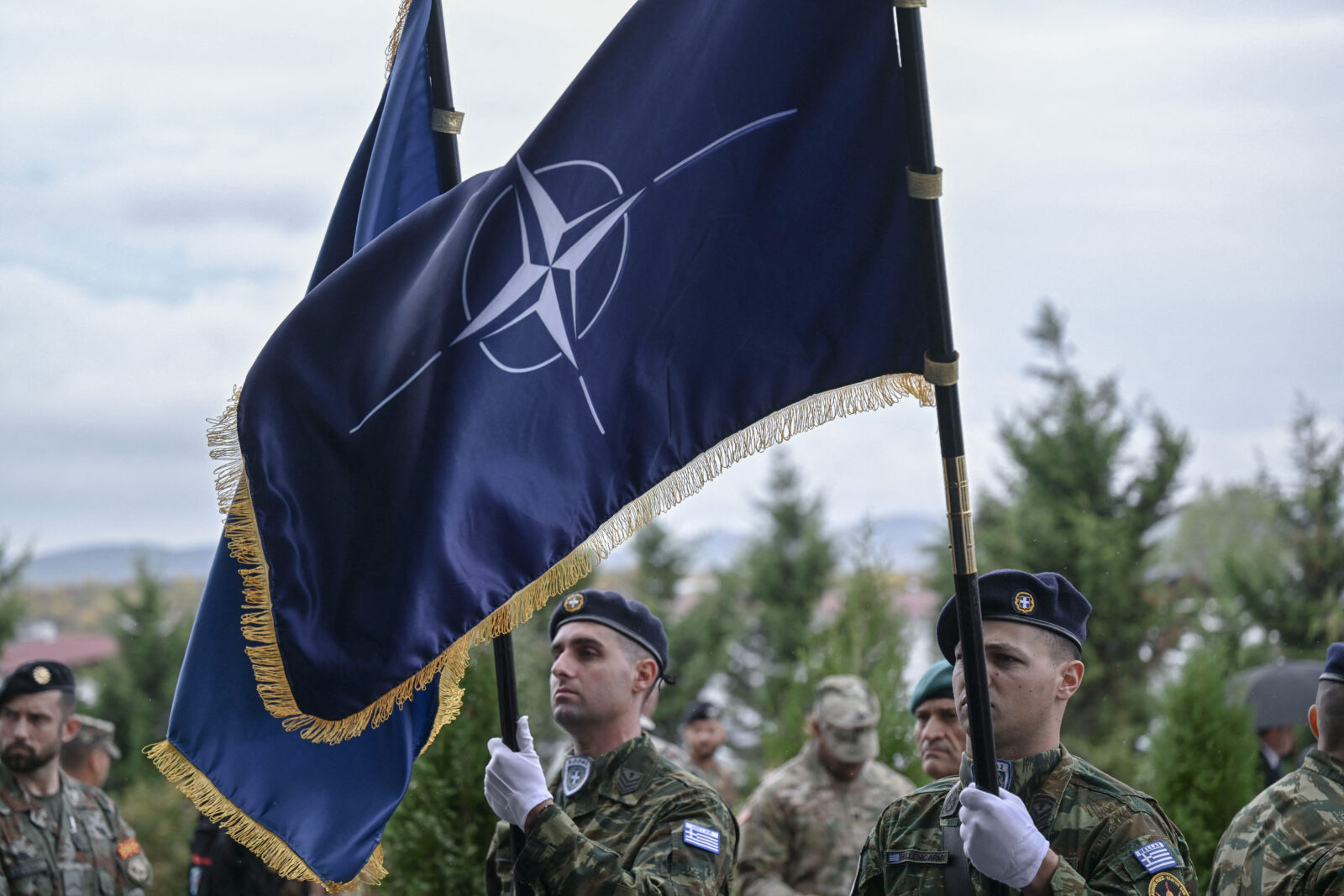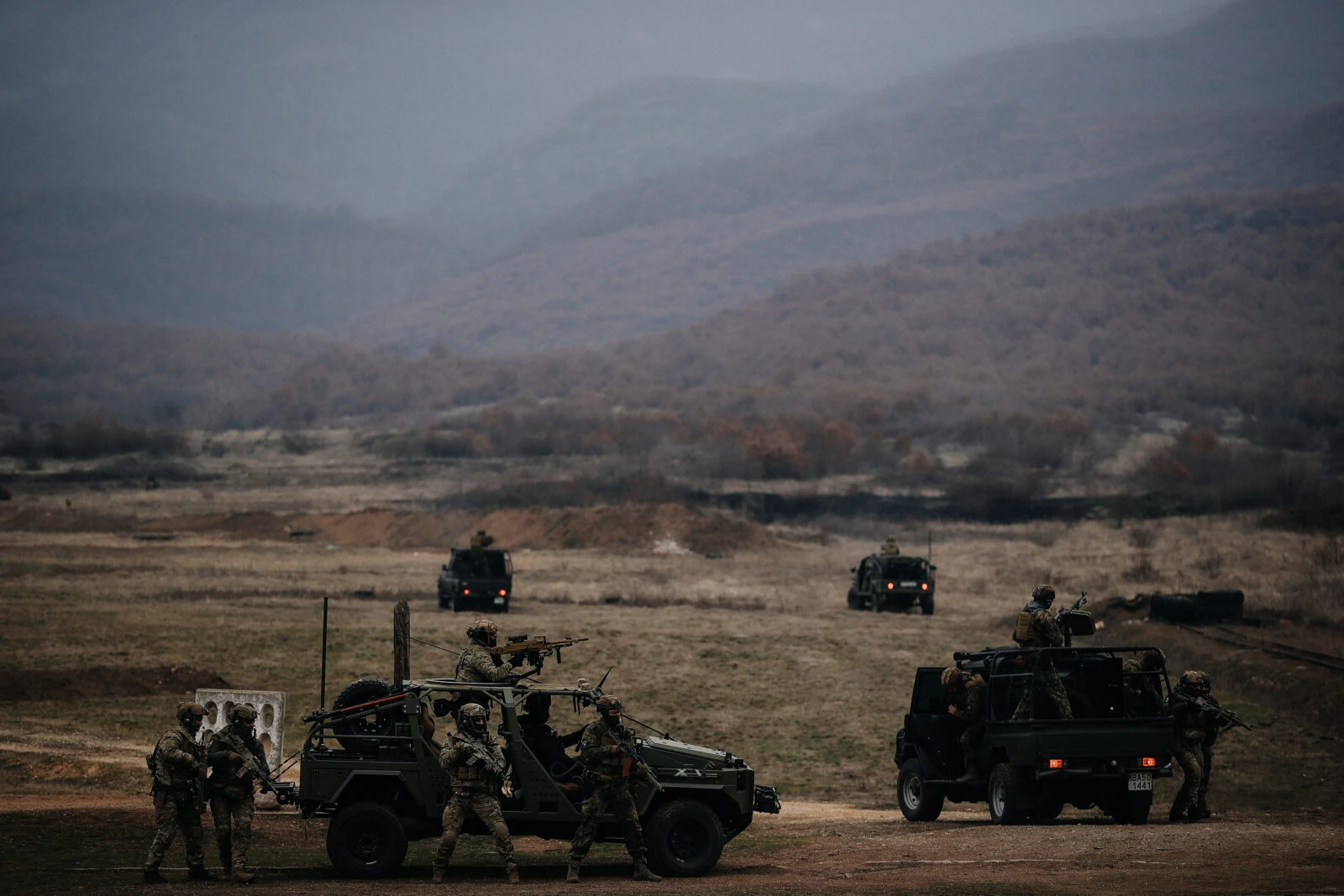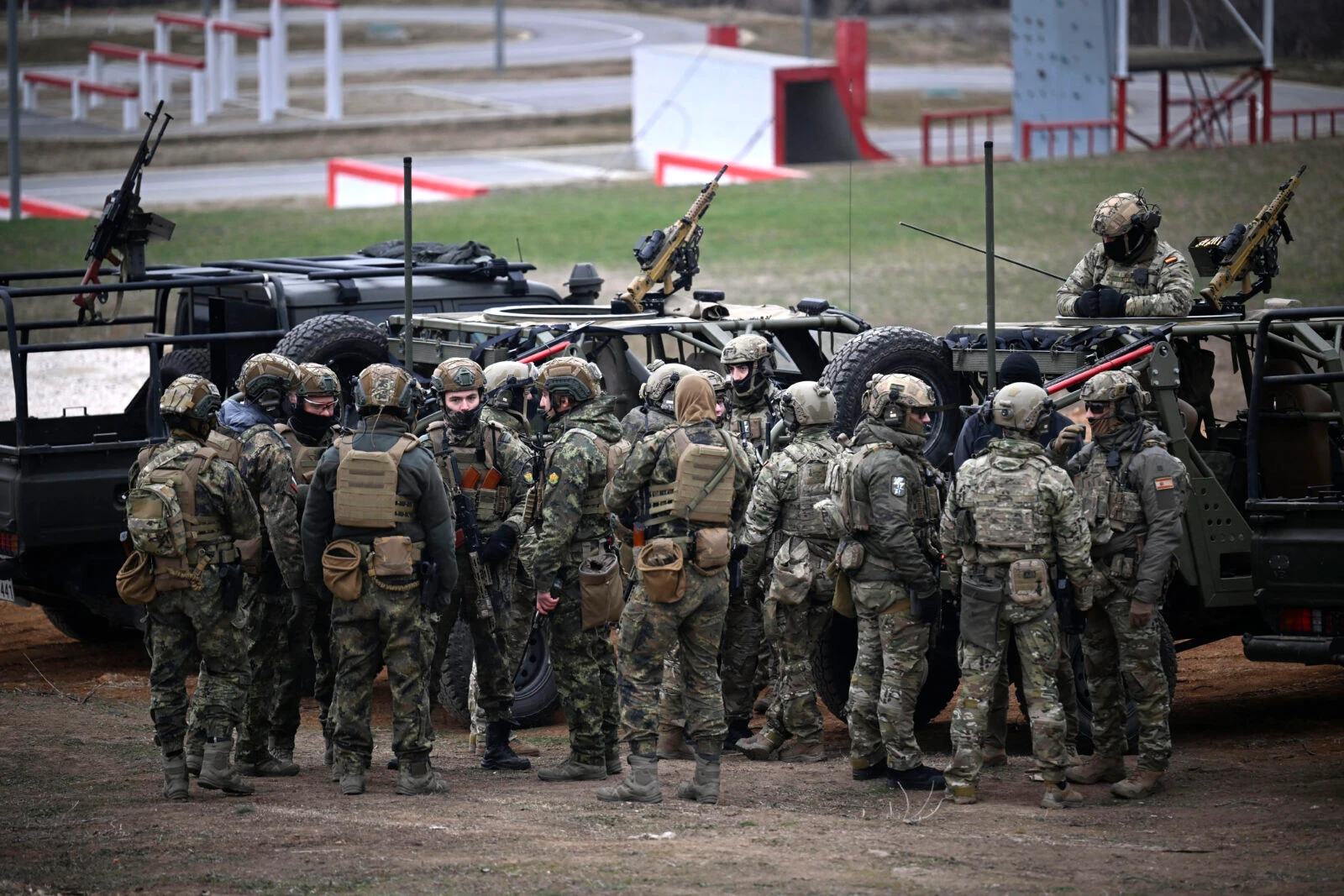UK expects more than 30 countries to join Ukrainian cease-fire coalition
 Soldiers from Spain drive a Leopard tank after crossing the Vistula river as they take part in the NATO DRAGON-24 military exercise in Korzeniewo, northern Poland, March 4, 2024. (AFP Photo)
Soldiers from Spain drive a Leopard tank after crossing the Vistula river as they take part in the NATO DRAGON-24 military exercise in Korzeniewo, northern Poland, March 4, 2024. (AFP Photo)
The United Kingdom expects more than 30 countries to join a coalition aimed at securing a lasting peace in Ukraine, though British officials acknowledge that many of these nations may not be willing to deploy troops on the ground.
Countries willing to contribute to ceasefire efforts
The coalition, which includes nations such as Britain, France, and Australia, has signaled their readiness to contribute military forces to help enforce a ceasefire.
However, all have warned that any peace achieved in Ukraine could only be sustained with significant support from the United States, particularly in the form of military air power.
Denmark and Sweden have also expressed their willingness to provide forces for the peacekeeping mission, though their contributions may vary.
Discussions about the specific roles that these countries will play are ongoing.

Meeting of military planners to discuss details
Military planners from the countries involved in the coalition, which U.K. Prime Minister Sir Keir Starmer has dubbed “a coalition of the willing,” will meet near London on Thursday to discuss operational details.
British officials have suggested that the multinational force could number up to 30,000 troops, though they caution that a durable peace would require the backing of U.S. air power and additional military support.
“It’s not just about troops,” said a spokesperson for Starmer, highlighting that countries could contribute in a variety of ways, including providing fast jets, engineering and logistics support, or backfilling forces engaged in other regions. “There would be a significant force with a significant number of countries.”

Reluctance among some EU nations to commit forces
While the U.K. is optimistic about the number of countries that could join the coalition, many EU nations are reluctant to commit troops.
Countries like Ireland, Luxembourg, and Belgium have not ruled out participation but are awaiting clarification on the rules of engagement and the legal framework for any potential peacekeeping mission.
Countries that share borders with Russia, such as Finland and Poland, have expressed concerns about deploying forces to Ukraine.
They argue that they need to keep their own troops stationed to defend their borders in case Russia uses a ceasefire to redeploy troops in a way that could pose a threat to their security.

US support remains key to mission’s success
Downing Street confirmed that Prime Minister Starmer has emphasized that any deployment of U.K. troops as part of the coalition must be in the context of a secure and lasting peace, which would require U.S. backing.
However, the refusal of U.S. President Donald Trump to offer military air cover or other support has cast doubts over the feasibility of the proposed peacekeeping mission.
“No one wants to see a few European troops, without US support, in the firing line in Ukraine,” one EU diplomat remarked. “It would put an enormous strain on NATO unity should something occur.”

Ongoing discussions, international support
A total of 26 countries held talks in London on Saturday to discuss the formation of the coalition, with most participants being European nations, though Australia, Canada, and New Zealand were also involved.
Japan, though not directly involved in the discussions, has expressed its backing for the initiative.
On Tuesday, Kaja Kallas, the EU’s foreign affairs representative, is scheduled to meet with UK Foreign Secretary David Lammy and Defense Secretary John Healey to continue discussions on the coalition’s structure and the operational details of the proposed peacekeeping mission.



